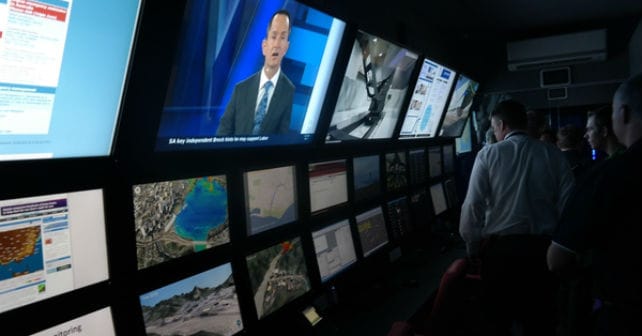John Higgins on business vs. climate change
 John Higgins, director general of technology trade association Intellect, examines the role of the industry in climate change.
John Higgins, director general of technology trade association Intellect, examines the role of the industry in climate change.
Here he goes then:
“The technology sector is a new industry and has developed at extraordinary speed over the last few decades, and on a scale far beyond early predictions. It also developed in response to the market pull of an environment where energy was not a major issue, where the sleeping giants of China and India were still snoozing, and where the kind of mass adoption we see today was no more than a pipe dream. It is a relatively immature sector and it has a lot of work to do.
It is clear that there is considerable scope for improving the energy efficiency of ICT and CE products. In April 2007, Gartner estimated the ICT sector was responsible for around 2% of global emissions, which is a lot of carbon, irrespective of our sector size, our contribution to GDP or anything else. We have to work on reducing “our 2%” just like every other sector has to work at reducing its own share of emissions. However, it should also be clear that the technology sector has embraced the challenge of energy efficiency and is producing better, faster, lighter devices that use less and less energy as the result of a continuous process of intensive research and development.
Improving energy efficiency through incremental improvements can have a substantial effect over time, but in reality it can only have limited benefits – for instance it can compensate for the increase in productivity through economic growth or improvements in functionality – but it cannot do enough. We need to do much, much, more in order to have any chance of achieving the kind of reduction in CO2 emissions over the next 50 years that is required to stabilise climate change. So in addition to improving efficiency we have to find ways to completely decouple economic growth from energy consumption. This is not an either/or scenario – we have to do both.
The technology sector is taking a leading role in this sense – producing dramatic efficiency improvements in existing products and simultaneously taking a central role in the development of alternative, low carbon technologies. We already help businesses and individuals do things in different ways, improving efficiency, replacing traditional, high-impact processes with low carbon, low-impact alternatives which are being integrated into everyday life at an unprecedented speed. New technologies do not just change the way we do things – they change what we do, they create whole new business models, stimulating innovation and spawning new industries and technologies.
But there are barriers to progress. Although the predictions of the government’s Market Transformation Programme illustrate the dramatic effect that a wholesale adoption of best available technologies could have on energy use, these are not realistic scenarios but illustrations of what could be achieved under the right conditions. Robust policy instruments are required before these scenarios can approach reality.
Under current circumstances there is little incentive for individuals to seek out energy efficient products, or to change behaviour and adopt energy efficient lifestyles. And the reason for this? It is partly a cultural and behavioural issue but the principal problem is that there is a market failure in carbon where the social costs of emissions are not added to the price of energy. This results in no clear price signals to differentiate energy efficient products from cheaper but less environmentally friendly ones, to encourage consumers to make energy efficient purchases and to focus competition around energy efficiency.
Although our report covers some complex issues, the important actions emerge very clearly. We need to understand the energy implications of our products and processes better, we need to stimulate and encourage behavioural change to drive demand for energy efficiency and we need to optimise efficiency through our supply chain. Some of this work is up to us but some has to be shared.
We also need to identify and then accelerate the development of the best low carbon technologies because there are two solutions to the problem of climate change – the intelligent use of technology and innovation. This is not the time to sit back, relax and wait for new technologies to sort everything out for us – the low-carbon technologies that the new economy will rely on need active stimulation and support, whether they already exist or not. We need to do everything possible collectively to accelerate their development and adoption because timing is a critical success factor in avoiding the disastrous accumulation of atmospheric CO2 that could result from further delay.
The recently published and well-researched book “Avoiding Dangerous Climate Change” takes an in-depth look at the scientific issues associated with climate change and presents the most recent findings from leading international scientists. It concludes, “In the long run, technology needs to be the central element of response strategies to climate change”1. We in the technology sector fully support that conclusion.”
Intellect is the trade association for the UK technology industry. It represents over 800 organisations of all sizes. In February Intellect published a report entitled High Tech: Low Carbon, which discusses the role of technology in tackling climate change. It is available to download from: www.intellectuk.org/hightechlowcarbon.com




